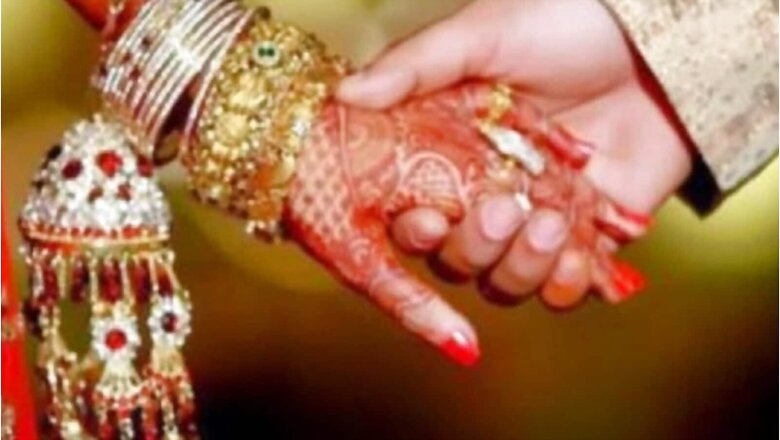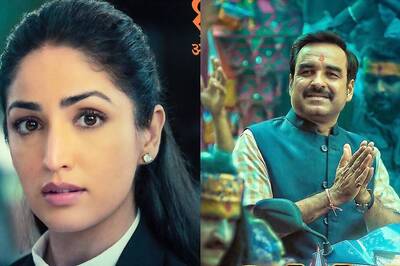
views
The split verdict by the Delhi High Court on the matter of marital rape has elicited equally divided responses from across the nation, many of which, call to question our idea of marriage itself.
At the heart of this debate, is the exception of forcible sex by a husband on his wife, from Section 375 of the Indian Penal Code (IPC) 1860, which defines ‘rape’ as sexual acts by a man on a woman against her consent.
Petitioners have expressed that this exception undermines the bodily autonomy, dignity and fundamental rights of married women. On the contrary, those in support of retaining the exception (including Justice Shankar, and several men’s rights groups) argue that marriage is accompanied by a “legitimate expectation of sex.” Further, they advocate that the contestation of this expectation could crumble the very institution of marriage as we know it.
Echoing the concerns of the petitioners, Justice Shakdher, who took the stance in opposition to this exception, stated the following,
“Modern-day marriage is a relationship of equals. The woman by entering into matrimony does not subjugate or subordinate herself to her spouse or give irrevocable consent to sexual intercourse in all circumstances… The right to withdraw consent at any given point in time forms the core of the woman’s right to life and liberty which encompasses her right to protect her physical and mental being.”
He also added that the fact that the perpetrator is the spouse of the victim does not make the experience of sexual assault “any less injurious, degrading or dehumanising.”
Justice Shakdher’s statement points to not just our society’s concept of marriage, one evidently rooted in patriarchy, but also our concept of female agency at large.
By denying women the freedom to take their own bodily and sexual decisions, the system is yet again (and not too subtly) implying what is expected from a woman, and particularly from a ‘dutiful’ wife. It is implying that a woman’s body is bound to the whims of her husband, thereby sending the constitutional provision for equality for a toss.
Furthermore, Justice Shankar’s remark on the justified, or “legitimate” expectation of sex that is tied to marriage limits the scope of this relationship altogether. If the exception of marital rape is scrapped from the IPC, several Indian marriages risk being crumbled. Their very premise, it seems, is the subjugation of women into sexual intercourse.
The divide on this issue compels us to ask some fundamental questions such as: What is the place of a woman in an Indian marriage? What is the place of women in Indian society at large? What is the status of the bodily autonomy of Indian women?
Beyond the societal strings that bind this case, we must also call attention to its psychological implications. What is the impact of forced/ non-consensual sex on the mental health of its victims? Does the nature of this impact change, based on the relationship between the perpetrator and victim (here, husband and wife, respectively)?
How does a lack of legal protection on the issue affect the victim’s justice-seeking and support-seeking behaviours?
According to a report, the National Family Health Survey reveals that nearly 1 in 3 Indian women between the ages 18-49, have suffered some form of spousal abuse, and 6% have suffered from sexual violence.
However, these figures must be looked at from a critical lens, as one report states that a whopping 99% of India’s sexual assault cases go unreported. Going by this statement, India’s current policy measures are rooted in that meagre 1 percent representation of cases.
Is it reasonable then, to rely on the existing laws to represent the voice of women in India? Legal provisions must evolve with the evolving moral lens of society. This moral lens demands that existing structures are questioned.
In the context of marital rape and/or other forms of intimate partner violence (IPV), women end up with several irreversible, lifelong bruises on both their physical and mental health. Consequences such as acutely low self-esteem, depression, anxiety, and post-traumatic stress disorder are common. We may be willing to uphold some existing paradigms, but at what cost?
And at whose expense?
Perhaps the split verdict on the matter is not only indicative of our division of opinion but an opportunity to reflect on what we truly value as a society.
Sanjeev P. Sahni is Principal Director at Jindal Institute of Behavioural Sciences (JIBS). The views expressed in this article are those of the author and do not represent the stand of this publication.
Read all the Latest Opinions here




















Comments
0 comment